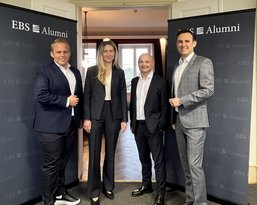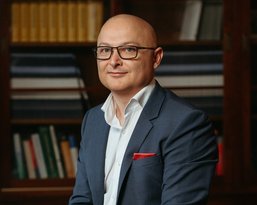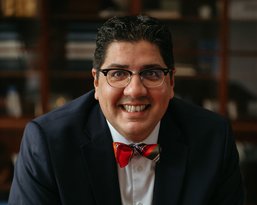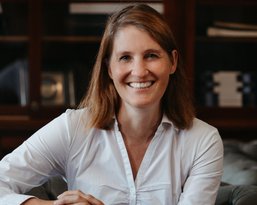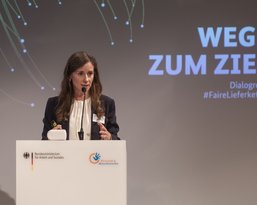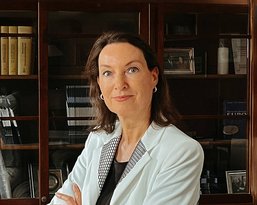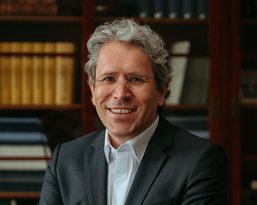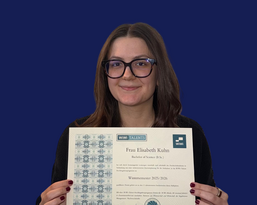
Successful professorial qualification for EBS Law School Prof. Sarah Legner
Congratulations! In the interview, Prof. Legner talks about her Habilitation thesis and how she would like to give EBS students a better understanding of her broad expertise.
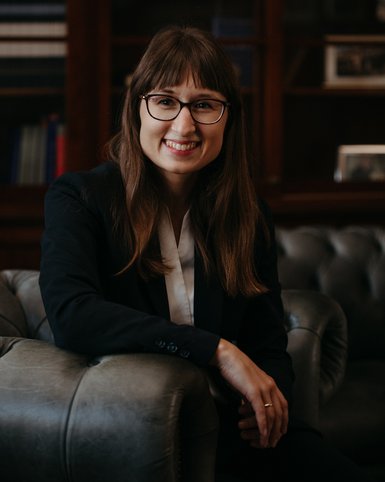
We are pleased to announce that our esteemed colleague, Professor Sarah Legner, recently gained her professorial teaching qualification (German: Habilitation) with a paper on the "Drafting of Multilateral Exchange Contracts" and was awarded the venia legendi for the subjects Civil Law, Commercial Law and European Private Law by the University of Konstanz in July 2023.
EBS: Congratulations on your professorship, Prof. Sarah Legner! Could you give us a brief insight into the central topic of your work "Drafting multilateral exchange agreements" and what significance this topic has in today's legal practice?
Prof. Sarah Legner: In principle, German contract law only contains provisions on bilateral contracts. Nevertheless, everyone is free to enter into a contractual relationship with several parties. Such multilateral contracts have so far only been researched in the context of corporate law. However, if four parties do not want to form a company but, for example, want to exchange plots of land, the legal structures are not so clearly defined. My work develops the dogmatic structures of these contracts and proposes a new type of contract, the multilateral cooperation contract, which could be incorporated in the Civil Code.
How multilateral exchange agreements fit into the bilateral structure of German and European contract law has recently become of practical relevance, especially in the construction industry. In Great Britain or Australia, complex construction projects have long been implemented using multilateral contracts. The German construction industry is also increasingly interested in this form of contract. Because it turns out that disputes and delays in project implementation can be avoided if the central parties involved - client, planner and contractor - sit down at the same table and negotiate the contract programme together. Finally, the topic has gained considerable practical relevance through the multilateral business models of large digital corporations. For example, mediation platforms influence the content of the contracts that users conclude via their platform.
EBS: Your professorship covers the subjests of civil law, commercial law and European private law. How do you plan to incorporate this broad expertise into your courses and get students interested in these areas of law?
Prof. Sarah Legner: I am pleased to say that I have already been able to include some of my focus points of research in my courses. I aim to present exam-relevant material not separately from but together with socio-economic contexts. Taking a glimpse of issues right and left of the topic at hand often helps to sharpen one's mind in terms of regulatory contexts. In addition, new European legal acts have strengthened the links between the areas of law. The new warranty regime of digital contract law can be better understood, for example, if it is known that digital products are often also protected by copyright.
EBS: The Habilitation is an important milestone in an academic career. What challenges did you overcome during the Habilitation process and what advice would you give to other young talents who aspire to a similar career?
Prof. Sarah Legner: The postdoc period is definitely an exciting time. For me, the most challenging part was the variety of tasks that junior researchers have to deal with. The objective is to sharpen one's research profile, gain teaching experience and, in the best-case scenario, acquire initial third-party funding and make contacts. An important piece of advice was given to me by my academic teacher Prof. Jochen Glöckner, LL.M. (USA), right at the beginning of my postdoc period: The Habilitation thesis is the most important and biggest undertaking, something you should never lose track of. Moreover, I think it is important to follow one's genuine interests. The research foci chosen in the Habilitation phase often determine what one will be working on for the next decades.
EBS: The University of Konstanz has awarded you the venia legendi for several subjects. What opportunities do you see to create synergies between the different disciplines through interdisciplinary approaches?
Prof. Sarah Legner: Indeed, recent legal developments have created new overlaps between contract, consumer and commercial law. In particular, the challenges of digitalisation require more attention to be paid to frictions between the individual areas of law. This is currently key for me, for example, in the area of consumer and copyright law. Moreover, I find it fascinating to follow similar developments in very different areas of law. As a result of climate change, there are calls in antitrust law, for example, to focus more on behavioural economic findings on consumer behaviour when determining the effects of competition restraints. At this point, consumer law has already gone a step further. In designing information requirements, the Union legislator recognised, for example, that there may be limits to consumers' ability to process information.
EBS: As a young professor, you will certainly have a vision for your future academic work. What are your goals and how would you like to contribute to developments in civil law, commercial law and European private law?
Prof. Sarah Legner: My goal is to further enhance my research profile in the coming years. On the one hand, I want to devote more time to antitrust law - the area of law in which I did my doctorate. The protection of free competition is currently being challenged in many ways, be it by tech giants, restrictions on competition under the guise of sustainability or the current trend towards deglobalisation. On the other hand, I am interested in taking a closer look at consumer risks in the digital economy. Finally, I want to intensify my international focus. Last week, for example, I was able to speak at the International Association of Consumer Law Conference and to meet great consumer rights lawyers from all over the world.
EBS: Thank you very much for the interview!
